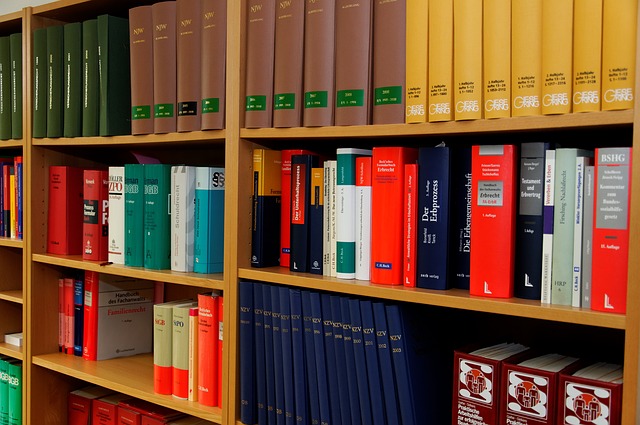Relocation with my minor child to Italy, Milan (Consent and Refusal) – Advocate Muhammad Abduroaf
The world is becoming a much smaller place, and technology plays a huge role. People are moving across the world for employment, love and happiness, something that was not the norm a few decades ago. There is no reason why you should remain in South Africa if you can find a better life for yourself and your family overseas. Moving overseas may provide you with the quality of life you want or the possibility of experiencing things you always wanted. The same applies to your child or children relocating with you.
Relocation of your minor child to Milan, Italy
If you are single and do not have any minor children, then moving around the world would not be too complicated. All you need to do is ensure that you have the necessary travel documentation and travel ticket (and spending money), and off you go. However, if you want to travel with your minor children (for example, ages three or four) or relocate to another country, things may not be that simple. Firstly, if there is another parent, and he or she has parental responsibilities and rights, then his or her consent is required. For example, let us say you live in Cape Town or Pinetown, South Africa, and you want to relocate to Milan, Italy, you would require the other parent’s consent to leave South Africa with your minor child. This can cause challenges, especially if the staying parent (in South Africa) does not agree to the relocation.
What about Passport Consent to travel or relocate to Milan, Italy?
The same applies when it comes to your minor child applying for a South African passport to relocate to Italy, or any country. Both parents who have parental responsibilities and rights of guardianship will have to consent to the minor child’s passport application as well. In this regard, both parents have to be at the Department of Home Affairs (or the relevant bank that also assists with passport application) when making the Application with the minor child. This can be challenging if you have a disinterested parent who does not want to cooperate with the passport application. As you will see later, legal action would need to be taken.
What are the steps to follow when I want to relocate to Milan, Italy with my minor child? There is another parent.
To simplify the process for relocation, the first step would be to receive the other parent’s consent in principle for the relocation and that he or she will co-operate in this regard. Once that has been resolved, the parent relocating would need to make the appointment for the minor child’s passport application as well as the application for the relevant VISA. Each country has different requirements; however, seeing that it is a relocation, you need to apply for the correct VISA. For that, you need the Passport.
Once the visa and travel arrangements have been finalised, the parent remaining behind will sign a parental consent letter for the international travel. That letter can be found on the Department of Home Affairs website. Basically, the parent remaining behind would state that he or she gives consent for the minor child to leave the Republic of South Africa and travel and/or relocate to Milan, Italy.
What can I do if the other parent does not want to consent to the minor child’s relocation to Milan, Italy?
If the parent remaining in South Africa does not want to consent to the minor child’s passport application and/or his or her relocation to Milan, Italy, then you would need to approach the Court. The Court, as upper guardian of the minor child, may order that the parent’s consent for the passport application and relocation be dispensed with. What this entails is submitting Court documents explaining why you want to relocate to Milan, Italy. The other parent would also have an opportunity to give reasons why he or she objects.
At the end of the process, the Court would determine what is in the minor child’s best interests. If it is in the minor child’s best interests to relocate to Milan, Italy, the Court would make it possible despite the issue of consent or refusal.
What is the first step I should take if the other parent does not want to consent to the minor child’s passport application and/or relocation to Milan, Italy?
If the other parent does not want to consent to the passport application and/or the relocation of the minor child to Milan, Italy – in that case, we suggest you approach an attorney or advocate (trust account) to assist you with the legal process. He or she would then contact the other parent explaining the reasons for the relocation and request the necessary consent. If the parent remaining in South Africa does still not agree to the passport application and/or to the relocation to Milan, Italy, then the attorney or advocate will proceed to take the matter to court. The legal route can be expensive. However, it is necessary to make the relocation of the minor child possible. You may also attend to the legal process yourself.
Getting legal assistance or help with your relocation application to Milan, Italy
If you require legal assistance or representation with relocating to Milan, Italy due to the other parent not cooperating or providing consent, then feel free to contact us for assistance. The Firm Advocate, Muhammad Abduroaf, deals with these types of matters.
 Child Custody Lawyer, Divorce Lawyer, Cape Town[/caption] Not all lawyers are the same. Just as not all doctors are the same. You won’t go to a medical doctor who is a foot specialist (podiatrist) if you have a skin problem. For that, you will see a Dermatologist. This you would do, even if the podiatrist knows a bit about skin illnesses and diseases and is, nonetheless, a medical doctor. The same principles apply to the law and to lawyers. Various lawyers specialise in various fields of law. Some know more, and some know less. You won’t meet with a property lawyer if you have been accused of medical malpractice; or would you? You get the point we are trying to bring across.
Child Custody Lawyer, Divorce Lawyer, Cape Town[/caption] Not all lawyers are the same. Just as not all doctors are the same. You won’t go to a medical doctor who is a foot specialist (podiatrist) if you have a skin problem. For that, you will see a Dermatologist. This you would do, even if the podiatrist knows a bit about skin illnesses and diseases and is, nonetheless, a medical doctor. The same principles apply to the law and to lawyers. Various lawyers specialise in various fields of law. Some know more, and some know less. You won’t meet with a property lawyer if you have been accused of medical malpractice; or would you? You get the point we are trying to bring across. 
 Child Custody Lawyer, Divorce Lawyer, Cape Town[/caption]
Child Custody Lawyer, Divorce Lawyer, Cape Town[/caption] Advocate Muhammad Abduroaf – Advocate High Court of South Africa[/caption] We proud ourselves on our knowledge on family law, and related matters relevant to South Africa. This includes issues and questions surrounding divorces, custody and child maintenance. Feel free to browse through the questions and answers below. Should you not find the answer to a divorce question you are looking for, scroll down to the bottom of this page and post your divorce-related question. Or you may
Advocate Muhammad Abduroaf – Advocate High Court of South Africa[/caption] We proud ourselves on our knowledge on family law, and related matters relevant to South Africa. This includes issues and questions surrounding divorces, custody and child maintenance. Feel free to browse through the questions and answers below. Should you not find the answer to a divorce question you are looking for, scroll down to the bottom of this page and post your divorce-related question. Or you may  Child Custody Visitation and Contact[/caption]
Child Custody Visitation and Contact[/caption]